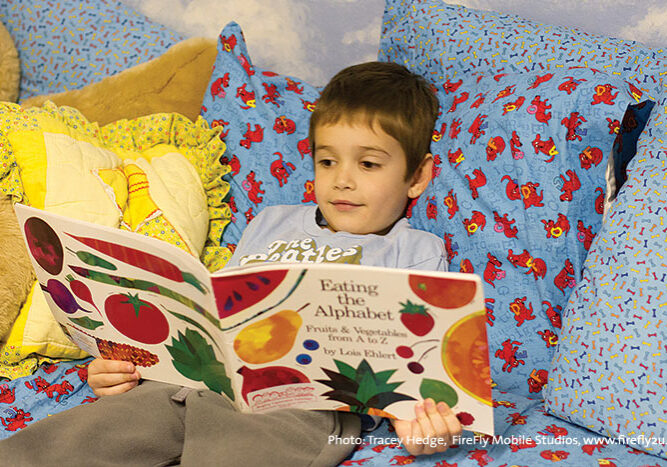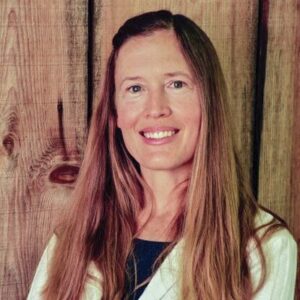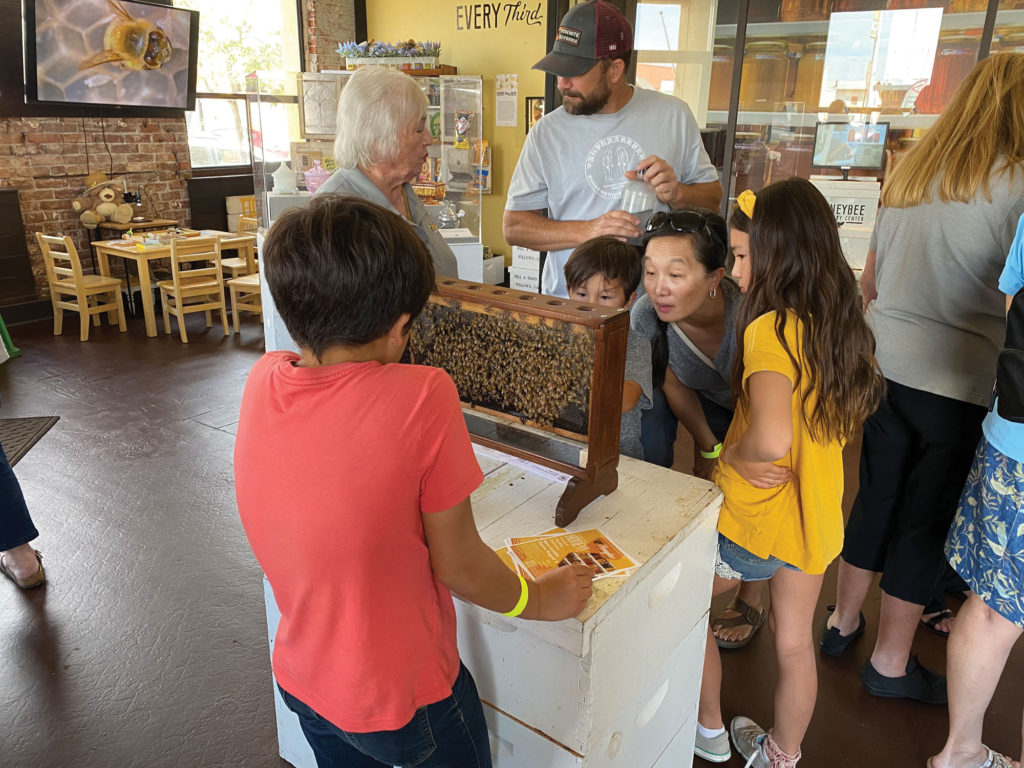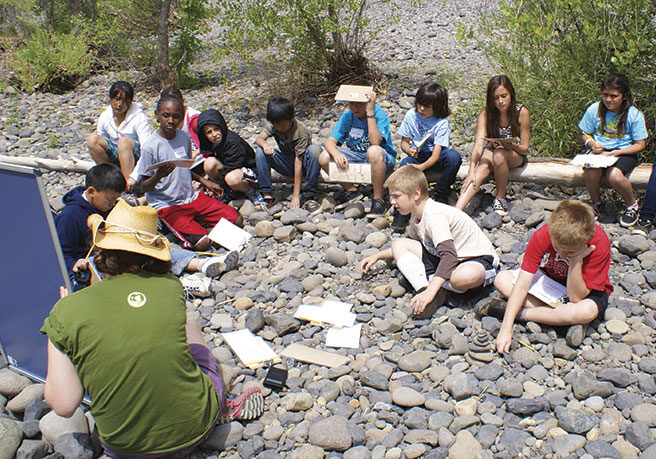Because one-third of all the food we eat is directly or indirectly dependent on honeybee pollination, bees and other pollinators are vital for human life. At Orland’s Honeybee Discovery Center, currently “hived” in what was once the Bank of Orland building, North State families and children can learn how easy it is to be good stewards of bees, their habitat and their tasty contributions to our food supply.
In the US alone, there are around 300 different honey varieties, each containing the signature flavor of the bees’ nectar source. This year, the Honeybee Discovery Center is highlighting many of those varieties by showing off their unique colors in a fascinating display. Additional visual and hands-on educational material throughout the center will keep visitors of all ages engaged.
Tasting the facts about honey
In this new HONEY! exhibit, open until the end of the year, visitors can learn the history of honey, discover how honey is produced, see a bee’s anatomy up close, watch bees at work, taste honey from different nectar sources and learn the benefits of honey. They also may have the chance to speak to a seasoned beekeeper and sit in on story time.
The idea for a discovery center in Orland, the designated “Queen Bee Capital of North America,” originated with Yvonne Koehnen—whose grandchildren are now seventh generation Glenn County beekeepers. Koehnen grew up in Ord Bend and told herself she would never marry a farmer. She says, “I wasn’t going to spend my days picking up almonds.”
Although she did end up marrying a farmer of bees, she became an expert at picking out queens from the hives. “Marrying a beekeeper made for a very good life,” Yvonne says. Her late husband, Bob, was responsible for many innovations in the beekeeping and almond industries. To honor Bob’s memory, Yvonne is just one board member who is working tirelessly to secure funding for a new, state-of-the-art center.
“Anybody can be a beekeeper”
The historical downtown Orland building is a unique location for the Discovery Center, as it looks much like a hive and is central to all the busy downtown activity. The new center is also planning more area for indoor and outdoor displays and for growing pollinator gardens. Board member Nicole Johansson loves to teach visitors about the ways they can directly help bees thrive. She wants people to know, “Anybody can be a beekeeper.” The same isn’t true for other types of farming that can be cost prohibitive and difficult to get into without farmers already in the family. With beekeeping, start-up costs are low and space needs are minimal compared to other types of farming. She notes that many local beekeepers started in the profession without any prior experience in farming.
Fun facts about bees
Laurel Hill-Ward, a board member and dedicated volunteer who can often be seen around the center, is a Willows beekeeper whose family has been keeping bees since 1906. Laurel loves to intrigue kids with facts that many adults don’t even know. “Kids learn well when they can teach adults something new,” she explains. For example, she says, “Bees intuitively create hexagons which are the most efficient use of space for rearing brood and storing honey without using any more of the bee’s energy than necessary for wax production.” The hexagonal structure is also extremely strong and dissipates heat well so that the wax doesn’t melt.
For more fun facts related to bees, honey and hives board members Donica O’Laughlin and Carolina Burreson would love to help you find a time to explore the center. Visit HoneybeeDiscoveryCenter.org to schedule a K-12 field trip or private group tour. The center can also bring its traveling museum to schools that are out of the area. Take time in the next six months to stop by the center, at 501 Walker Street in Orland, and see the beautiful honey display. Visitor hours are Fridays 3-6pm and Saturdays 10am-1pm.
Posted in: Education, Out & About
Comment Policy: All viewpoints are welcome, but comments should remain relevant. Personal attacks, profanity, and aggressive behavior are not allowed. No spam, advertising, or promoting of products/services. Please, only use your real name and limit the amount of links submitted in your comment.
You Might Also Like...

Shasta Garden Railway Society: An Addictive Hobby
Mike Evans says the beginning of his fascination with model trains began when he was about 4 years old and he “inherited” his older brother’s Lionel train set. Now an […]

Again! Again! How to Make Reading Irresistible for Preschool Boys
I want my son to love books – so I began reading to him when he was tiny. Despair descended when, at six months old, he was more interested in eating […]

Is Your Child A Procrastinator?
I remember the night I thought procrastination was going to kill me. I remember the year (seventh grade), the course, the teacher, and the Native American nation I was supposed to […]

Setting Ourselves Up For A Successful School Year
I’d love to pass along some advice, from a teacher’s perspective, so we can all set ourselves up for a successful school year. It might be online, it might be […]




